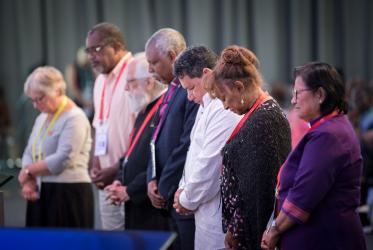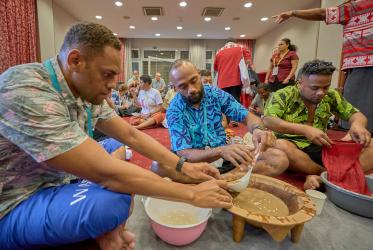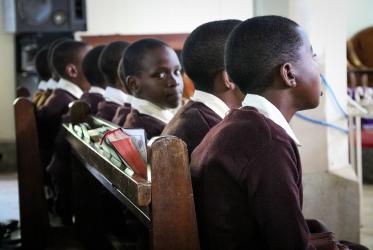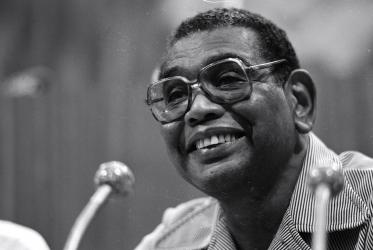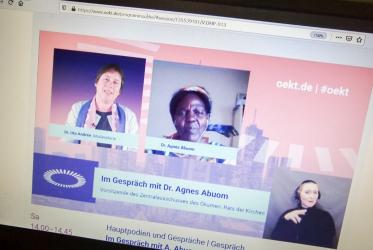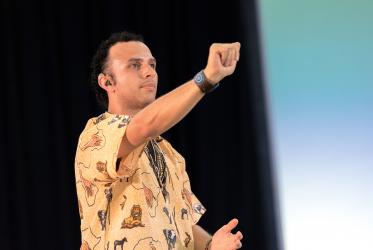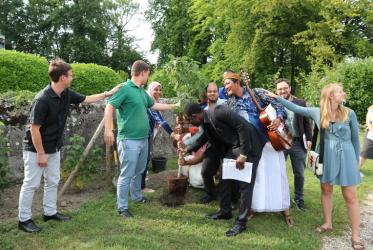Displaying 21 - 40 of 134
05 September 2022
Regional perspectives brought to the 11th Assembly
05 September 2022
WCC stands behind youth call for action on climate justice
25 November 2020
WCC commemorates life of Rev. Michael J. Davies
14 October 2020
In Japan, indigenous and ecumenical youth call for action against racism
12 September 2019
Bossey students explore the meaning of “belonging”
22 July 2019
